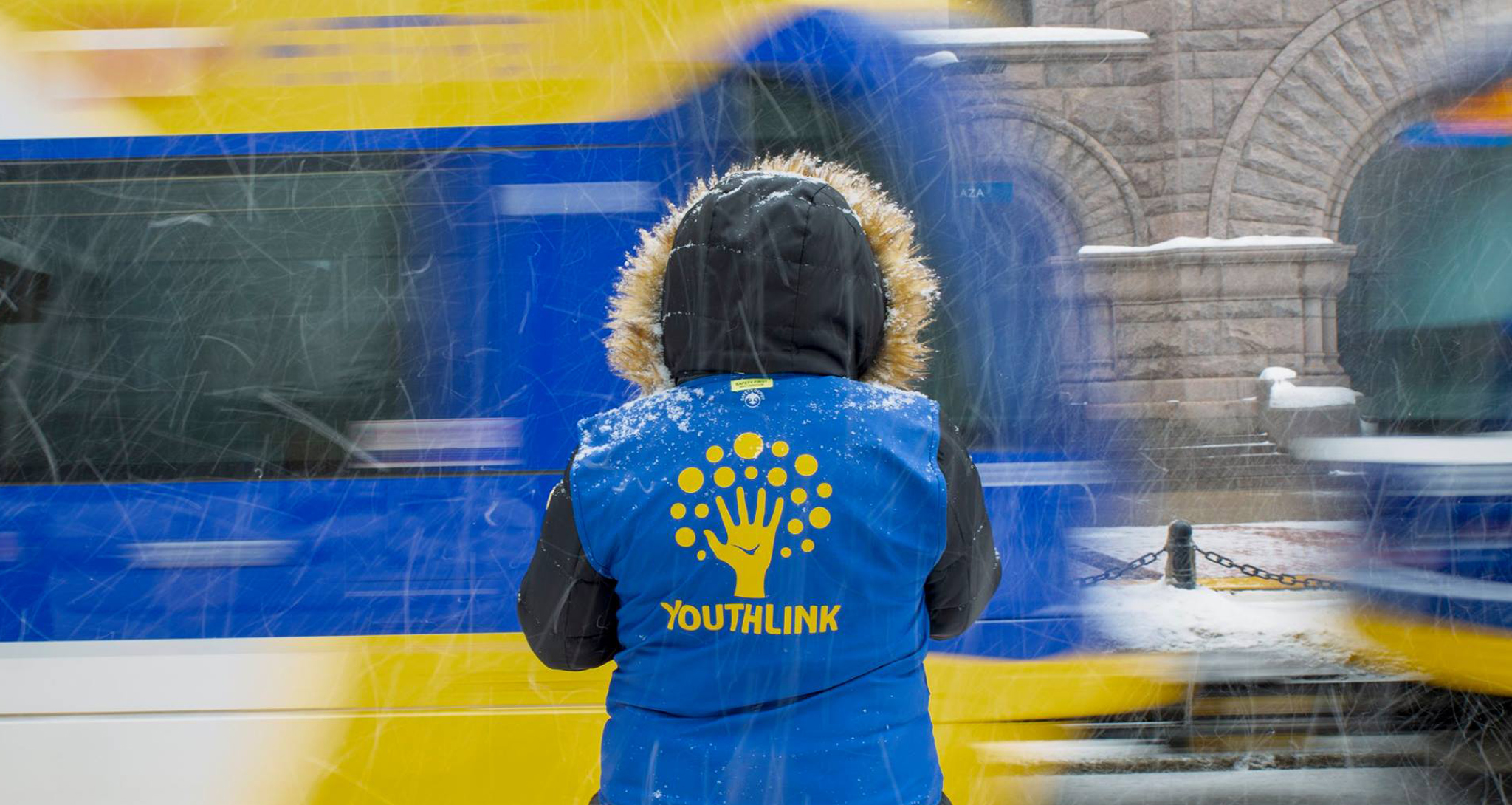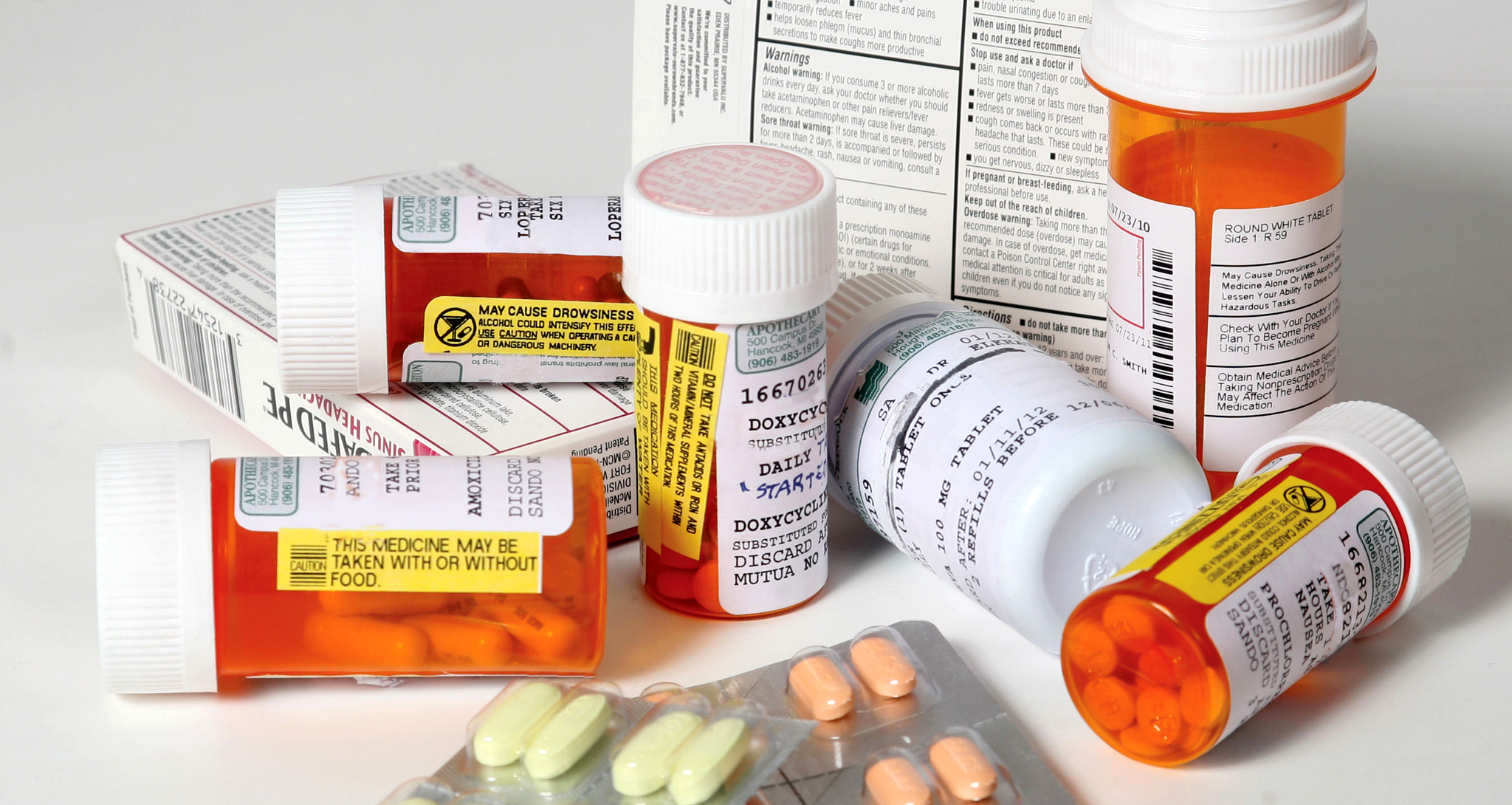

Two years ago, Dr. Heather Huseby received shocking news. A staff member came into the YouthLink CEO’s office and told her that one of their clients, a 21-year-old female, had been found dead from an opioid overdose.
“I did a double take and repeated [the youth’s] name,” Huseby says. Then she went straight to the young woman’s apartment, where police had gathered.
YouthLink is a nonprofit in downtown Minneapolis that serves homeless youth, ages 16-24. The nonprofit operates a drop-in center and connects clients to a range of resources, including supportive housing, health, education, and career services.
YouthLink staff describe the young woman as vivacious and well-liked. She’d grown up in foster care, overcome many challenges, and was turning her life around.
Her death traumatized staff and left Huseby feeling angry, sad, and hopeless. “I’d seen her 10 days before,” Huseby says. “She had a lot of hopes and dreams for the future. To this day, whenever I walk into YouthLink, I think about her.”
Dr. Heather Huseby, Youthlink CEOShe had a lot of hopes and dreams for the future. Whenever I walk into YouthLink, I think about her.
Opioid related
overdoses in
Hennepin County
between January
and August 2020,
compared to
160 in 2019
Huseby’s story underscores the many ways that the opioid epidemic is devastating the Hennepin County community. And that epidemic has gotten worse during COVID-19.
In 2019, there were 160 opioid related deaths in Hennepin County. From January through August 2020, there’ve already been 181.
Huseby has observed this trend at work. “I’ve seen more heartbreaking stories in the past two years than in my other 14 years at YouthLink,” she says. “It’s been a spiral. My staff have experienced more overdoses and had to make more calls to EMS than ever before.”
This acceleration in the opioid epidemic is not limited to Hennepin County or to YouthLink. It’s happening nationally, too.
Millennium Health’s analysis of 500,000 urine drug tests showed a 32% increase in nonprescribed fentanyl and a 13% increase in heroin between March and May 2020. During that same period, suspected drug overdoses climbed 18%, according to a national tracking system at the University of Baltimore.

While the opioid epidemic was already worsening due to a rise in the use of fentanyl, a synthetic opioid that’s 50 to 100 times more powerful than morphine, the pandemic has contributed to the situation by making life harder for people with substance use disorders. For example:
Treatment and support services have been disrupted
People are told to stay home during the pandemic, which goes against the need to go to clinics for methadone and other addiction medications. Access to clean needles has been affected. And many rehab facilities have limited new clients, cancelled programs, and closed doors.
Staying away from others increases the risk for addiction
In order to prevent the spread of coronavirus, it’s important to physical distance and stay home when you’re sick or waiting for test results. But these steps also prevent people from attending peer support groups.
Staying away from others may also increase the risk of overdose deaths
People who adopted harm reduction techniques and had been using drugs with a friend are now using them alone, and there is no one nearby who can administer naloxone or call 911 in the event of an overdose. When people do call 911, the health care system is overloaded, and first responders may arrive more slowly.
People are more likely to use opioids when experiencing traumatic events
Research from Hurricane Katrina shows that people are more likely to increase their substance use for at least six months after a stressful event. And traumatic events can be extra triggering for people who’ve experienced them before.

“Knowing that the COVID-19 pandemic has made living conditions worse for people with substance use disorder increases our urgency to respond in innovative ways,” says Julie Bauch, Hennepin County’s opioid response coordinator.
Bauch says Hennepin County has remained focused on opioids despite COVID-19. All essential health services are still in operation, including naloxone distribution and needle exchange.
Hennepin County’s Health Care for the Homeless and Public Health Clinics are still serving patients. The county jail and workhouse continue to provide buprenorphine (suboxone), an addiction medication, to people who are incarcerated and screen positive for opioid use disorder. And Hennepin County detox and treatment providers are still working, using telemedicine so that people can safely access group, clinic, and medical treatments.

The fall, tragedy struck YouthLink again. Several young people bought a pill off the streets; they thought it was a prescription pain reliever, but it was fentanyl. A few overdosed, and for one that overdose was fatal.
“A lot of people consider these youth throwaways,” Huseby says. “They come to us at a crossroads. We have this one opportunity with them, and when they know their potential you should see them soar.”
Huseby laments that a single mistake can derail everything. “I don’t want to lose another young person,” she says. “These are our next generation. They can be great, with enough opportunity.”
Treatment for substance use disorders
Hennepin County provides programs for residents who are struggling with an addiction. Read more about treatment resources.
Medication disposal
Safely dispose of unused medicines at a medicine drop box in Hennepin County.
The Sheriff’s Office can also mail you a medical disposal bag (Deterra bag) you can use at home. To use a Deterra bag, just open the bag, toss in the unused pills, add water, shake, and place it in the trash. You can watch an instructional video here. Email drugdisposal@hennepin.us to have a medicine disposal bag mailed to your house.
Naloxone
The Red Door Clinic offers naloxone (Narcan), a medication that can prevent an opioid overdose. Anyone who is interested in naloxone doesn't need to call ahead. Services are available when Red Door is open: Monday mornings 9 a.m. to 1 p.m., Wednesdays 9 a.m. to 4 p.m., and Friday afternoons from 1 to 4 p.m.
The Sheriff’s Office also offers online training on how to properly administer naloxone. To schedule a training, email drugdisposal@hennepin.us
Needle exchange
The Red Door Clinic also offers clean needles and other supplies to promote safer injection at no cost. You can drop off used needles at the same time as you pick up clean ones. Anyone who is interested in clean needles doesn't need to call ahead. Services are available when Red Door is open: Monday mornings 9 a.m. to 1 p.m., Wednesdays 9 a.m. to 4 p.m., and Friday afternoons from 1 to 4 p.m.
For more resources, see: https://www.hennepin.us/residents/health-medical/addiction-help
Written by: Lori Imsdahl